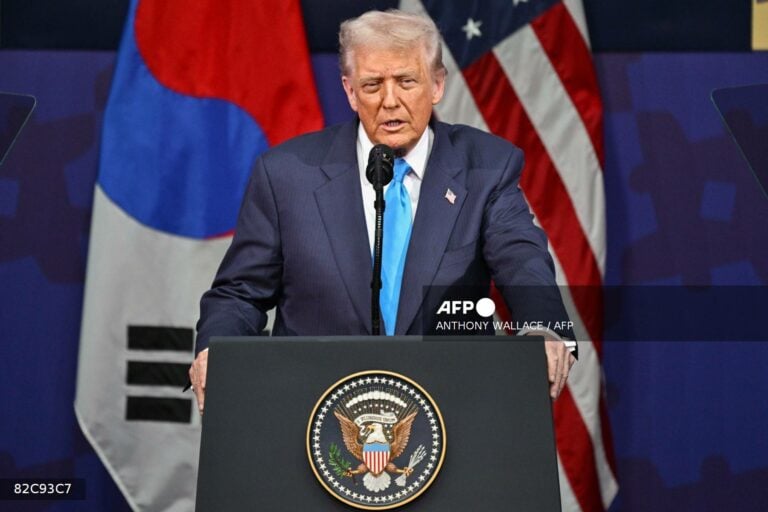Nigeria’s financial markets opened November 2025 on a weak note as the naira and equities fell sharply following U.S. President Donald Trump’s threat of possible military action against Nigeria over alleged religious persecution.

Central Bank data showed the naira dropped from N1,421.73/$ to N1,436.34/$ on Monday — a 1.03% decline — and weakened further to N1,455/$ at the parallel market. The tension followed Trump’s post on Truth Social, where he labelled Nigeria a “country of particular concern” and warned of “possible action” if attacks on Christians continued.
The statement rattled investors, dragging the Nigerian Exchange All-Share Index down by 0.25% to 153,739.11 points and cutting market capitalisation by N245.9bn to N97.58tn. Aradel Holdings (-9.21%) and Access Corporation (-3.07%) led the losses, while Union Dicon gained 9.93%. Market activity also plunged, with trading volume and value down by 87.94% and 44.64%, respectively.
Sector performance was mixed: Oil & Gas (-3.94%), Commodities (-1.85%), Insurance (-1.48%), and Banking (-0.22%) declined, while Consumer Goods rose slightly (+0.49%). In the bond market, Eurobond yields rose by 5 basis points to 7.70% amid global risk aversion, with Bloomberg reporting that Nigeria’s dollar bonds were the worst performers among emerging markets.

Analysts were divided on the outlook. CFG Advisory CEO Tilewa Adebajo described the drop as a temporary “blip,” noting Nigeria’s removal from the FATF Grey List as a positive sign. However, Dr. Musa Yusuf of the Centre for the Promotion of Private Enterprise warned that Trump’s comments could erode investor confidence, calling them “unwarranted and destabilising.”
He urged diplomatic engagement over confrontation, stressing that unilateral military action could harm Nigeria’s economy and regional stability. Markets now await clarity on U.S. policy and Nigeria’s response as authorities work to restore investor confidence.




